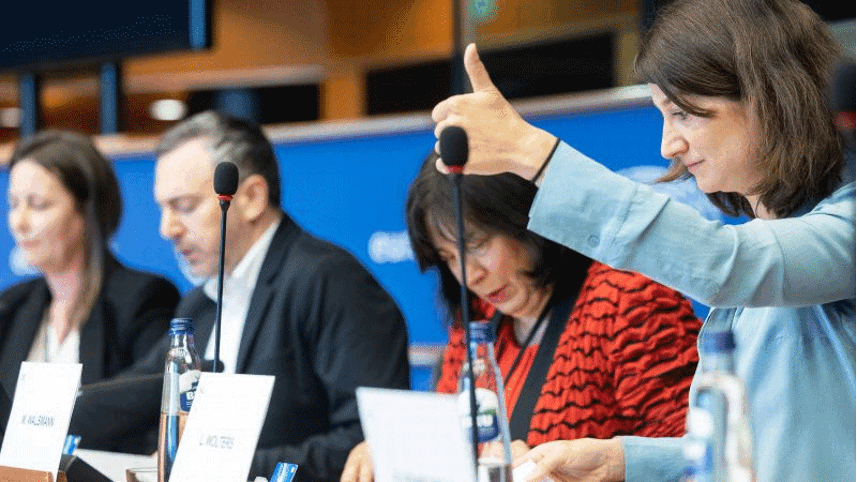Register for free and continue reading
Join our growing army of changemakers and get unlimited access to our premium content

Image: European Parliament
The Corporate Sustainability Due Diligence Directive was first presented by the European Commission in February 2022. The aim of the Directive is to better hold companies which are based in the EU, or operate within the bloc, responsible for the environmental and social impacts of their value chains.
Policymakers have been debating the fine points of the Directive tirelessly for more than a year. Earlier this month, debates were still ongoing about whether the Directive should apply to firms within the financial sector. There was also controversy over whether due diligence obligations should apply not only upstream, in supply chains, but downstream, in how product use impacts consumers.
Lawmakers on the EU’s Legal Affairs Committee voted in favour of a common position on the new Directive on Tuesday (25 April), paving the way for a final plenary vote in early June.
The common position text states that the rules should apply to some financial sector firms, including asset managers and institutional investors. But pension funds, alternative investment funds, market operators and credit rating agencies can be excluded at the discretion of individual member states, as things stand.
Many organisations are disappointed about the loopholes in the current position regarding the finance sector.
ShareAction’s EU policy officer Isabella Ritter said: “We are very disappointed to see that the rules for financial institutions were weakened on many accounts. The current proposal requires the financial sector to only carry out light touch due diligence, in clear contrast with international standards.
“Considering that the financial sector has a critical role in protecting the people and planet, it is important that financial institutions make full use of the tools that are available to them to take actions against environmental harm and human rights abuses. We need a regulatory framework that will achieve this, but the report voted today doesn’t go far enough. We urge the European Parliament to reconsider this in the next steps of the process.”
The World Benchmarking Alliance is more hopeful. Its head of EU policy Richard Gardiner said: “Our research shows that finance is lagging behind other sectors and the outcome of this vote, if turned into law, could catapult finance from sectoral laggards to top of the class.”
Whether they operate in the financial industry or another sector, all SMEs will be excluded from the scope of the Directive. This decision was made to avoid undue burden on these firms.
Other key points
Lawmakers agreed to exclude the use of products and services from the directive, meaning that it will largely apply to upstream activities.
Business associations had been arguing in favour of this approach, stating that extending due diligence and liability rules to the use of products would place a near-impossible bureaucratic burden on companies, opening the playing field for a wave of lawsuits.
But campaign groups had been calling for product use to be included. Amnesty International noted how the negative impacts of arms and surveillance equipment li in their use, not their supply chains. Some green groups had wanted product use to be included, to better hold companies to account for downstream emissions and dangerous chemicals.
The common position text stipulates that the burden of proof for any claims will be on the claimant, not the company.
However, regular disclosures – not just reporting on specific cases of potential abuses – are also covered in the Directive.
MEPs voted in favour of paving the way for mandatory climate transition plans, starting with large firms in high-emission sectors. The UK is notably finalising the timelines for its own net-zero transition plan mandate.
However, lawmakers opposed the introduction of mandatory links between due diligence obligations and directors’ remuneration at corporates.
The Parliament is now expected to vote on the report during the plenary session on 1 June. Negotiations with EU member states will begin later in the summer.


Please login or Register to leave a comment.